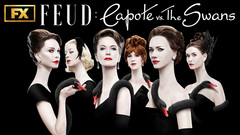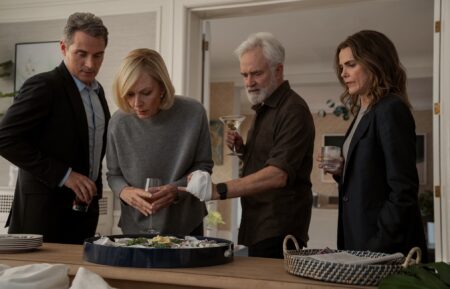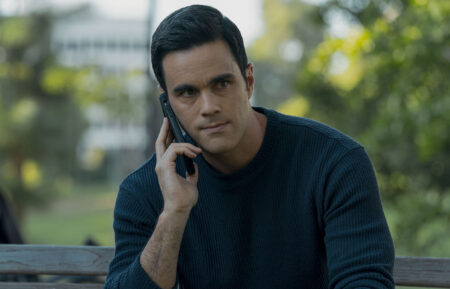Roush Review: ‘Capote Vs. The Swans’ Is a Vicious, Delicious ‘Feud’ in New York High Society
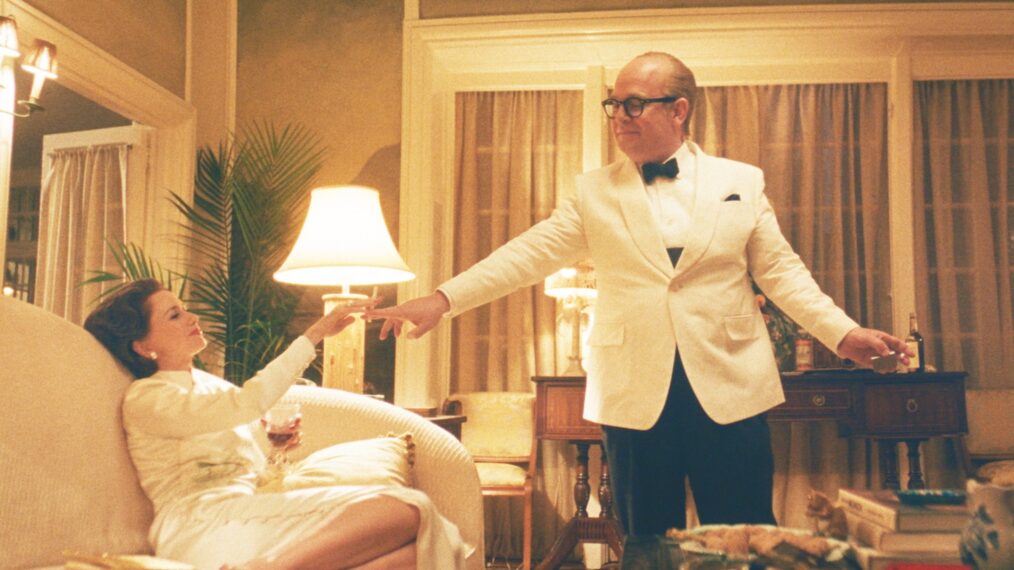
Review
The cold shoulder is mightier than the pen in Capote Vs. The Swans, a dazzling new edition of Ryan Murphy’s Feud anthology. The first Feud series, which aired in 2017, depicted the juicy rivalry of Hollywood divas Bette Davis and Joan Crawford. The gossipy and rarefied New York world of Capote, as sharply written by Jon Robin Baitz (Brothers & Sisters) and mostly directed by Gus Van Sant, takes us back to the 1970s’ “ladies who lunch” culture so memorably skewered by Stephen Sondheim in his breakthrough Company.
These “dinosaurs surviving the crunch” are a glamorous if garishly unsatisfied bunch, epitomized by Babe Paley (the stunning Naomi Watts), a statuesque and starched beauty unhappily wed to the flagrantly unfaithful CBS magnate William S. Paley (the late Treat Williams, terrific in his final role). Like her fellow socialites—an impeccably cast ensemble including Diane Lane (as Slim Keith), Chloë Sevigny (as C.Z. Guest), and Calista Flockhart (as the waspish Lee Radziwill)—Babe dotes on and confides in their constant lunch companion, the celebrated In Cold Blood/Breakfast at Tiffany’s author Truman Capote.
Capote is masterfully impersonated by Tom Hollander (so memorable as the leader of the murderous gays in The White Lotus). He captures the writer’s withering wit, simpering sympathies, and signature sing-song voice, as Capote feeds on their attention, drinking in every detail of every scandal as if it were a garnish on his ever-present martini. This erudite gnome, now more famous for being famous than for his stalled craft, is always listening, observing, professing his love for these women, so narcotized on their own privilege.
Babe becomes the center of his social universe, and vice versa. Having hardened her heart to all but this odd leprechaun, she tells him, “The only person who could hurt me is you.”
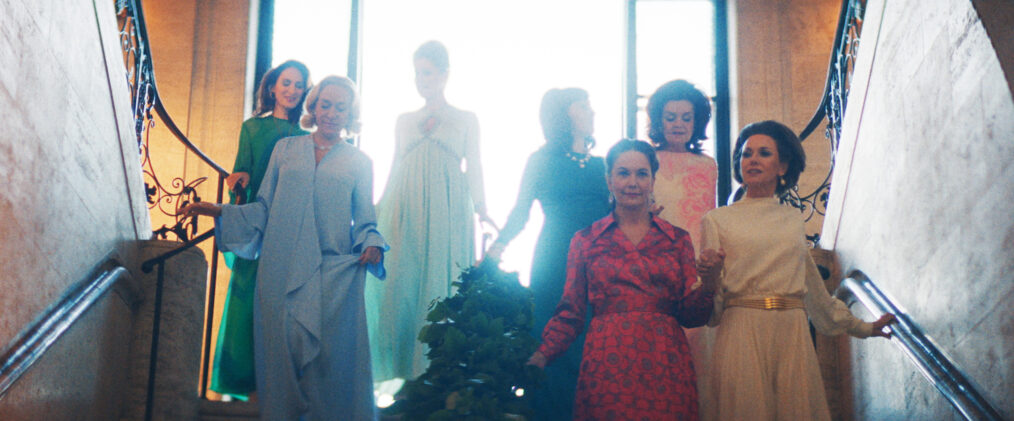
FX
Which is exactly what happens when Capote, blocked for years after the success of In Cold Blood, publishes a chapter of his long-rumored and unfinished roman a clef novel Answered Prayers in Esquire magazine in 1975. Titled “La Cote Basque 1965,” after the swank restaurant where he regularly dined with his “swans,” the dishy short story exposes their dark secrets with thinly veiled caricatures, fooling no one and enraging everyone. C.Z. Guest, who’s the only one of the group to take pity on Capote, describes the piece as “a collection of cruel scalpel cuts without the benefit of anesthesia.”
Babe is mostly heartbroken, telling her uncomprehending husband, “I turned to him for love, this homosexual court jester singing for his supper.” She won’t forgive him or return his calls, while a furious Slim Keith insists the sour sisterhood close ranks, shutting him out: “He will have no oxygen and he will die.”
A very slow death as it turns out, as Feud contrasts Babe’s lingering and losing battle against cancer with Capote’s self-destructive and self-pitying spiral into alcoholism, drug abuse, and unwise sexual and romantic liaisons. Which all sounds terribly depressing, and sometimes it is, but the series offers respites, including an episode flashing back to 1966 and Capote’s infamous Black and White Ball, the pinnacle of his social ascendance and power. (The episode is mostly in black-and-white, seen from the perspective of the documentarian Maysles brothers.) Another standout stand-alone episode stars Chris Chalk (Perry Mason) as his literary contemporary James Baldwin, Black and defiantly gay, who appears after the publication of “La Cote Basque” to lift Capote’s spirits and to urge him to get back to work.
Even at its darkest, Capote Vs. The Swans fascinates with its dissection of a waning social order. “It’s all a masquerade, you see,” Capote explains. “Because underneath the glamour: pain. Ballerina pain, gnarled feet. Because it is a dance requiring stamina and endurance.” Though he covets his access to their world, he knows he’s dispensable. “It’s all conditional. It’s a subtle contract. I play the part. It’s all a performance.”
And what performances. Beyond the inner circle, Demi Moore scores as the ill-fated Ann Woodward, a particular target of Capote’s venom for having allegedly shot her husband by mistake. Molly Ringwald brings a fervent desperation to Joanne Carson, one of Johnny’s exes, who stands by Capote to the bitter end. Joe Mantello adds a grounded poignance as his on-and-off partner Jack Dunphy, whose idea of tough love is to describe Capote as “no longer a writer, but rather a full-time, 60 hours a week, high-level drunk.”
Almost no Murphy production would be complete without his muse Jessica Lange, and sure enough, there she is as the wraith-like shade of Capote’s late mother, who abandoned him as a child but regularly returns to haunt and taunt him. The segments dwelling on his mother issues are among Feud’s most heavy-handed, including a deathbed scene when he imagines Babe tending to him, lovingly chiding him, “You’ve always been a child who needs his mother.”
We may never know exactly what demons possessed him to write Answered Prayers (never finished and posthumously published) and the excerpt that severed his connection to the world that he so desperately yearned to belong. As a eulogy to a squandered talent and a bygone white-glove world (La Cote Basque closed its doors 20 years ago), this Feud is one to remember.
Feud: Capote Vs. the Swans, Series Premiere (two episodes), Wednesday, January 31, 10/9c, FX (director’s cut simulcast on FXX), episodes streaming next day on Hulu
From TV Guide Magazine
Behind the Scenes With Gordon Ramsay: 20 Years of Cooking Up TV Hits
The celebrity chef reflects on redefining culinary television and his fiery journey Hell’s Kitchen to Secret Service. Read the story now on TV Insider.



